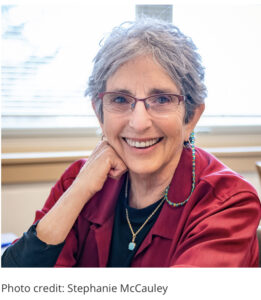Judi Meirowitz Tischler, Age 73
You look like crap!
This is what my best friend said when visiting me a few days after my unplanned hospital stay.
The Monday night episode had not been my first but it was the one I could not ignore. As my legs buckled I crumbled to the floor between the bedroom and bathroom, took in rapid, shallow breaths and visualized my forehead filled with suds. Bubble Brain was how I described it to the Triage Team. Not able to stand and determined not to lose consciousness, I bumped down the recently carpeted 28 steps from our third floor bedroom. Neither my husband nor I considered calling an ambulance. The local community hospital is a quick drive at 3:00 am. Only luck determined that was not a stupid decision.
Within five minutes of arrival at the Emergency entrance, I was in a bed surrounded by a well rehearsed team introducing themselves, repeatedly asking my name and date of birth and did I know where I was and why. I had a needle in my arm, first drawing blood and then administering fluid, and a Covid swab up my nose. Electrodes were placed on my body, a nurse practitioner had a stethoscope to my chest, a portable x-ray machine had been wheeled into my room and a monitor was beeping above my head recording vitals and heart rhythm. I remained alert and apparently oriented. I asked if I was having a heart attack. “No” was the reply, “We are concerned about a stroke.”
Having retired from a long career, much of it as a nursing home social worker, stroke was the thing I feared the most. It was the lurker that had motivated me to stay active, maintain a healthy weight and eat well. I was now on high alert. A doctor entered the room, introduced herself as a cardiologist and explained that I was in Atrial Fibrillation. She drew a rudimentary picture of what was going on in my heart and why it was dangerous. The plan was to wait twenty more minutes to see if I would revert to a regular rhythm on my own and remain that way for several hours. If not, I would need to be paddled. This carried risks. If I had developed any clots they could be dislodged and cause a stroke. I appreciated the clear explanation. I waited. My heart complied and I did not need external intervention.
Next was a medication lesson. Two drugs were prescribed, a blood thinner and a blood pressure regulator. I balked at the blood thinner since I am clumsy and bruise easily. After being reminded that taking the medications was my choice I was advised that refusing would be a foolish choice. The medications were begun. I tolerated them and was discharged at 5:00 pm with a follow up cardiology appointment.
The cataract surgery that had been scheduled for the next day was canceled.
The medications left me fatigued. I was irritable. Aside from my immediate family and two friends, I told no one. Thanksgiving arrived. I was relieved to be seated at the grownup table. Four elders, each with their own medical problems and public verses private management styles. I was quiet and deflective. I avoided the rituals that had accompanied previous changes in my status quo. There would be no social media announcement. I spent a full week assembling my Med Minders: AM, PM, With Food, On Empty Stomach.Two were left in the kitchen, two in the bathroom. I began to take stock of my health changes since turning 70.
Then, having had enough of myself I took to the woods. The woods near my house have long been a refuge. When the kids were young I would go there before they came home from school to recharge in preparation for the evening’s responsibilities. Early morning and mid afternoon are now my favorite times. The paths on which I had previously run while training for competitions are now for walking and noticing. Books and podcasts engage me where previously schedules and deadlines had raced through my mind. The woods worked their magic. Pep and optimism returned. A feeling of gratitude surfaced. Heading home, I decided that after the essential bathroom stop I would begin my year end charitable contributions, the envelopes already piled up on my desk.
A phone call interrupted me as I began.
It was my son. Having seen him and his family on Thanksgiving just days before, I was concerned and answered immediately. His news caused my heart to flutter. A new baby was coming in July.
